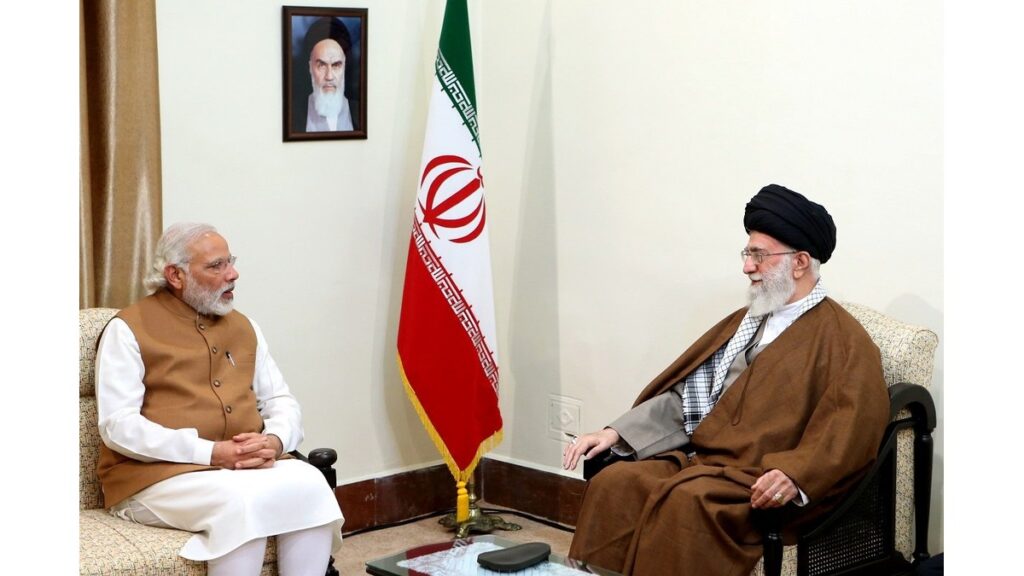
India’s Commitment to Iran’s Chabahar Amid US Sanctions.
India’s external Affairs Minister S. Jaishankar’s assertion on Tuesday regarding the resilience of Chabahar Port operations in the face of US sanctions against Iran underscores India’s strategic interests and regional commitments. His remarks reflect a nuanced understanding of the geopolitical dynamics shaping South Asia and the broader Indo-Pacific region. This stance reaffirms India’s unwavering commitment to Chabahar’s development as a crucial gateway for its trade and connectivity ambitions, especially as it seeks to counterbalance China’s expanding influence in the region.
Search
Recent Posts:
- OpenAI Brings ChatGPT to be used in WhatsApp: Here’s How It Works and What You Can Do To Use It.
- Realme 14x 5G: A Budget Smartphone With Premium Features.
- Exploring Apple Genmoji: A New Era of Custom Emoji Creation.
- 2024 United States Presidential Election: Donald Trump Declares Victory in 2024 Presidential Election
- Chancellor Olaf Scholz’s Visit to India: Advancing Indo-German Cooperation on Defense, Trade, and Regional Stability.
- Realme GT 7 Pro Is Ready To Launch in India On November with Snapdragon 8 Elite.
India’s Strategic Gateway to Afghanistan and Central Asia
The Chabahar Port, situated in southeastern Iran on the Gulf of Oman, holds immense significance for India’s maritime ambitions and connectivity aspirations. As Jaishankar highlighted, the port serves as a crucial gateway for India to access Afghanistan and Central Asia, bypassing traditional routes that traverse Pakistan. This strategic alternative not only diversifies India’s trade routes but also mitigates the risks associated with over-reliance on Pakistan-controlled corridors.
The Chabahar Port aligns with India’s broader foreign policy objectives, including fostering economic cooperation and enhancing regional stability. By investing in the port’s development and operational efficiency, India aims to bolster its influence in the region while promoting economic growth and development in Afghanistan and Central Asia. This multifaceted approach underscores India’s commitment to advancing regional integration and connectivity initiatives.
In light of the recent 10-year contract signed between New Delhi and Tehran to operate the Chabahar Port, concerns have emerged regarding the potential implications of US sanctions. However, Jaishankar’s reassurances emphasize the strategic imperative of preserving the port’s functionality and safeguarding India’s interests in the region.
The Geopolitical and Economic Significance of Chabahar Port in India’s Indo-Pacific Vision
While the US has maintained its stance on enforcing sanctions against Iran, it is essential to recognize the complex interplay of geopolitical interests at play. The waivers granted to India in 2018 for Chabahar Port development, primarily aimed at supporting Afghanistan’s reconstruction efforts, underscored the pragmatic approach adopted by the US to balance its strategic objectives in the region.
With the changing dynamics following the US withdrawal from Afghanistan, there is a need for recalibrating regional strategies and engagements. The Chabahar Port, once viewed through the prism of Afghan reconstruction, now assumes greater significance as a linchpin of India’s broader Indo-Pacific vision.
In addition to its strategic value, the Chabahar Port holds immense economic potential, serving as a key node in the International North-South Transport Corridor (INSTC). This ambitious project aims to facilitate seamless connectivity between India, Iran, Azerbaijan, Russia, Central Asia, and Europe, unlocking new trade routes and fostering economic prosperity across diverse regions.
India’s Chabahar Port Initiative to Counterbalance China’s Influence in the Indo-Pacific:
India’s engagement with the Chabahar Port complements its efforts to counterbalance China’s growing influence in the region, particularly through initiatives such as the China-Pakistan Economic Corridor (CPEC). By investing in alternative infrastructure projects like Chabahar, India seeks to assert its strategic autonomy and expand its footprint in the Indo-Pacific.
As Jaishankar rightly pointed out, effective communication and diplomacy are essential in navigating the complexities surrounding the Chabahar Port and addressing concerns raised by US sanctions. By articulating the mutual benefits of cooperation and highlighting past instances of US recognition of Chabahar’s strategic relevance, India aims to garner support for its continued engagement with Iran.
Ultimately, India’s commitment to the Chabahar Port underscores its broader vision of promoting a free, open, and inclusive Indo-Pacific region. Through strategic investments in infrastructure and connectivity projects, India seeks to reinforce its status as a key regional player while advancing shared prosperity and security across the Indo-Pacific.
To read more topics, please visit: https://insightfulbharat.com







